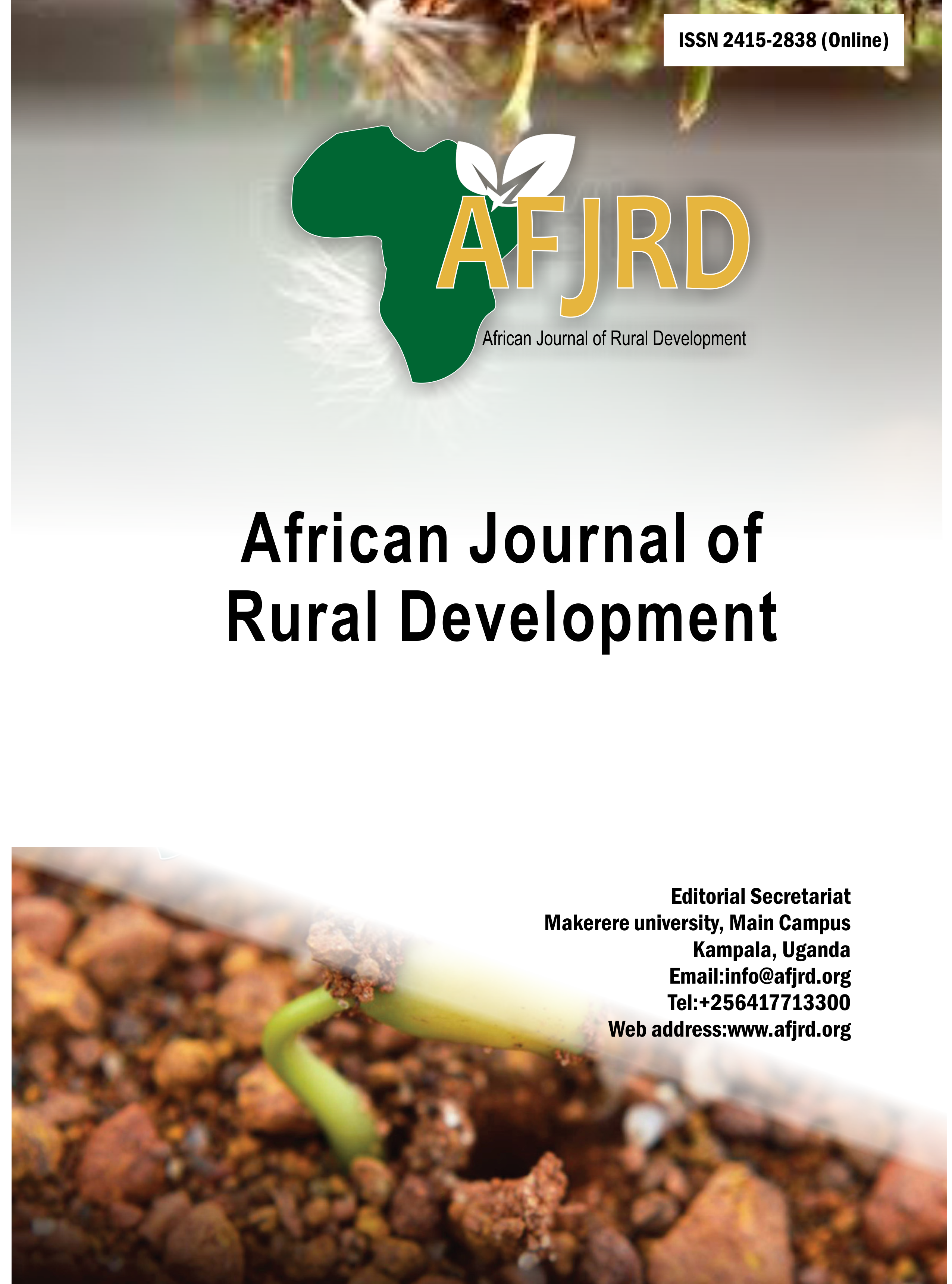Review of Cowpea Resistance to Flower Bud Thrips: Insights into Genetic, Secondary Metabolites and Environmental Interactions
Main Article Content
Abstract
Cowpea is an important legume crop in sub-Saharan Africa, valued for its high protein content and nutritional benefits. However, its production is severely hindered by biotic stresses, particularly flower bud thrips (Megalurothrips sjostedti), which cause significant yield losses by damaging flower buds and preventing pod formation. Although chemical pesticides are commonly used to control flower bud thrips, they pose environmental and health concerns, making alternative strategies critical. Host plant resistance, particularly through the exploitation of secondary metabolites, offers a promising, eco-friendly solution for managing flower bud thrips. This review highlights the biology of cowpea and flower bud thrips, examining the mechanisms of host plant resistance in cowpea, including morphological traits, plant defensive responses, and the role of secondary metabolites. It also explores the current progress in breeding for flower bud thrips resistance, emphasizing the need for genetic improvement using both conventional and molecular approaches, such as quantitative trait loci (QTL) mapping and genome-wide association studies (GWAS). Despite some success, the complexity of flower bud thrips resistance, environmental effects on metabolite production, and the inheritance patterns of secondary metabolites are not fully explored. The review concludes that further research into the biochemical and genetic basis of cowpea’s resistance to flower bud thrips is crucial for developing more resistant varieties and ensuring sustainable cowpea production.
Article Details

This work is licensed under a Creative Commons Attribution 4.0 International License.
